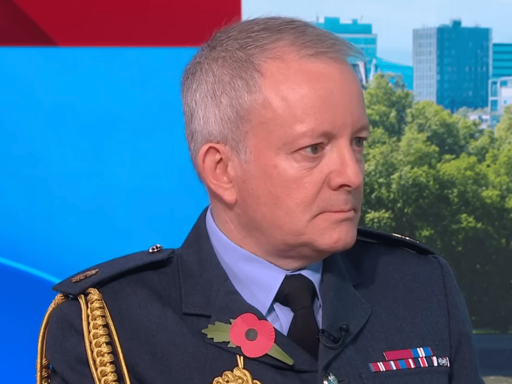A Royal Air Force (RAF) team will deploy to Belgium after suspected Russian drones shut down an airport. The deployment comes as the US government looks to massively expand unmanned aerial vehicle (UAV) production. The new head of the military, Air Chief Marshal Richard Knighton, announced the deployment during a Remembrance Day interview.
The Belgium deployment comes after suspected Russian drones were seen near an airbase. The Belgian defence authorities said the two-phased ‘attack’ on 1 November was aimed at testing defences. The Kleine Brogel base is home to US nuclear weapons. The Belgian defence minister Theo Francken said the Belgian drone jammer:
didn’t work because they tested our radio frequency, and they changed frequency.
He explained that:
They have their own frequencies. An amateur doesn’t know how to do that.
Asked why the drones weren’t shot down, Francken said:
When they’re over a military base we can shoot the drones down. When it’s nearby, we have to be very careful because they can fall on a house, a car, a person. That’s completely different.
RAF drone deployment
Air Marshal Knighton told Sky News:
I had my Belgian opposite number – the chief of the defence staff – in touch with me this week, seeking our help to track and potentially defeat the drones.
We agreed with the defence secretary on Friday that we would send our people and our equipment into Belgium to help them with the current problem they have got there.
The Ministry of Defence recently announced new laws would be brought into effect which would allow the military to shoot down drones near bases:
This weekend, the Defence Secretary has agreed to deploy a specialist counter-drone unit from the @RAF_Regiment to Belgium after a surge in unauthorised drone incidents.
Working with NATO allies, we stand ready to counter hybrid threats & keep skies safe. pic.twitter.com/bIY8DJpsL4
— Ministry of Defence
(@DefenceHQ) November 9, 2025
Against the backdrop of Ukraine, where drones have proven critical on the battlefields, Western militaries are expanding their own UAV capacities. And the US government announced it would buy up to a million drones.
US military publication Task and Purpose called it “the most concrete shift in the Army’s overhaul for the drone age. And, they said:
One major part of that was building out soldiers’ use of drones and systems to counter enemy uncrewed aerial systems. Hegseth ordered every Army division to use drones in at least some capacity by the end of next year.
British drones
But while the UK might not be buying a million drones but it has intensively tested both airborne and maritime unmanned vehicles. Two models of UAV were tested in an 18 day trial in Kenya. Rattler sea drones were tested off the west coast of Scotland in late October. The latter were reported to have autonomous capacity.
However, as Drone Wars director Chris Cole told the Canary:
The notion that we should consider the introduction of military autonomous drones into the maritime domain is as nonsensical as it is short-sighted. A decade ago the same politicians and commentators were hailing the advent of aerial drones only for the technology now to be recognised for what it is, a threat to us all.
British air force counter-drone experts also deployed to Denmark in October, after similar reports of unidentified drones overflying military installations.
Featured image via YouTube screenshot/Sky News
By Joe Glenton
From Canary via this RSS feed


